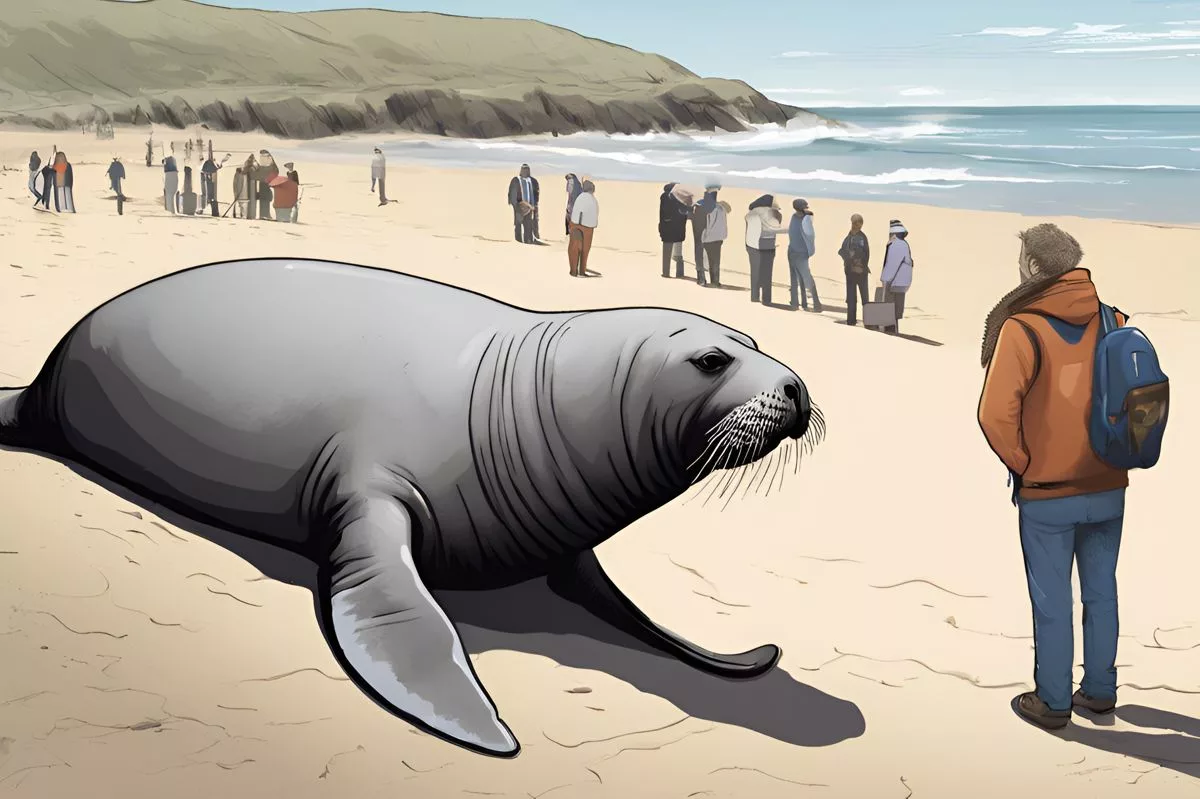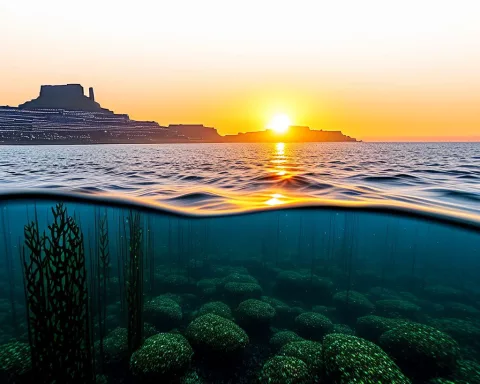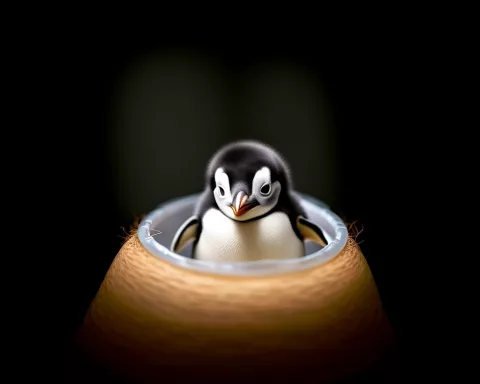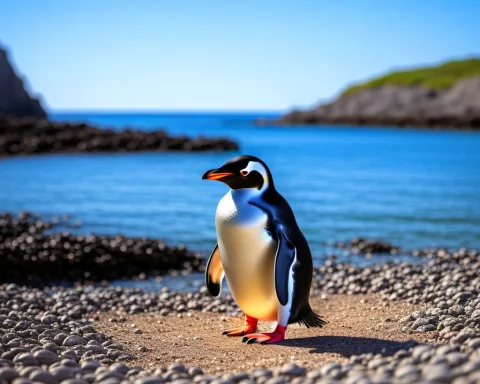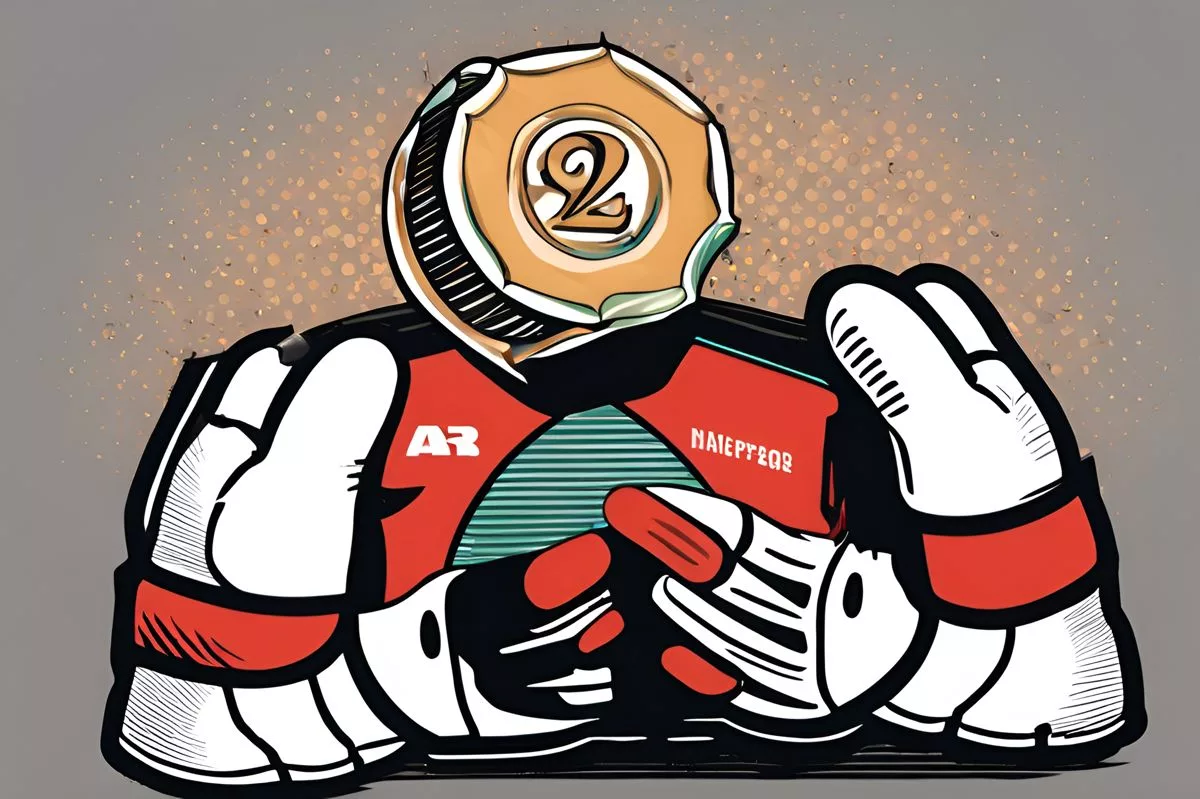Buffel is a southern elephant seal who visits Cape Town’s beaches every year to shed his skin. Despite usually living in the Southern Ocean, Buffel has an unusual fondness for Cape Town’s beaches and his annual visits serve as a reminder of the important role elephant seals play in marine ecosystems. They act as apex predators, regulating the population of prey species and contributing significantly to nutrient cycling. Buffel is also an indicator species, providing valuable data about the health of our oceans and the threats they face, and serves as a reminder of our responsibility to protect threatened species and maintain the delicate balance of our ecosystems.
The Tale of Buffel: Cape Town’s Unlikely Marine Ambassador
Who is Buffel and why does he visit Cape Town’s beaches every year? Buffel is a southern elephant seal who repetitively returns yearly for his annual shedding of skin, or moult, on several of Cape Town’s beaches. Despite typically making their homes in the Southern Ocean, Buffel displays an odd fondness for Cape Town’s beaches. His annual visits not only serve as an interesting divergence from the norm but also an essential reminder of the crucial roles that elephant seals play in marine ecosystems.
The Peculiar Pattern of a Unique Visitor
Every year, Cape Town’s beaches are graced by a rather unusual guest, Buffel, a southern elephant seal. These magnificent marine creatures typically make their homes in the Southern Ocean, particularly in the nearest colony situated on Marion Island, which is roughly 2,000 kilometers away from Cape Town. Distinctively, Buffel displays an odd fondness for Cape Town’s beaches, repetitively returning yearly for his annual shedding of skin, or moult.
Buffel’s story is as captivating as his habitual visits are unique. Local lore suggests that he was birthed upon Cape Town’s beaches, his mother a wanderer from her usual habitat. Since his initial appearance in 2016, Buffel has marked his presence on several of Cape Town’s beaches, from Llandudno to Fish Hoek, during his yearly moult. This moulting process, which results in the shedding of his skin, may give him a somewhat disheveled look, but it is a standard part of his lifecycle.
As explained by the Cape of Good Hope SPCA, Buffel’s moulting process might leave him looking drained and emaciated because elephant seals do not partake in hunting during their moult. They rely on their stored fat reserves, their blubber, to keep them nourished for about a month while they shed their skin. In contrast to the disheveled appearance, Buffel is neither sickly nor injured during this period. His annual phenomenon serves as an unusual yet fascinating marine biology lesson for locals and beach visitors, reminding everyone to respect his space.
The Marine Ecosystem’s Regulator
Buffel’s annual visits serve as more than just an interesting divergence from the norm. They act as a relevant reminder of the crucial roles that elephant seals play in marine ecosystems. These large seals are apex predators, crucial in regulating the population of certain prey species and preventing the overexploitation of marine resources. Their presence and predatory nature help in maintaining a diverse and balanced ecosystem.
Beyond population regulation, elephant seals also contribute significantly to nutrient cycling. They excrete waste rich in nutrients, which, when deposited on land, acts like a potent fertilizer, aiding the growth of coastal vegetation. This nutrient recycling has a profound impact on various other species, including seabirds and invertebrates, providing them with a nutritionally replete environment.
An Indicator Species and A Reminder of Our Responsibilities
Most notably, elephant seals like Buffel serve as gauges of the overall health of our marine environment. Tracking their populations and observing their behavior can provide priceless data about the ocean’s current state, serving as an early warning system for potential threats such as pollution and climate change. They act as a living, breathing barometer of the health of our marine ecosystems.
Buffel’s appearance on the beaches of Cape Town is a thrilling occurrence for both residents and tourists. However, amidst the excitement, it is important to remember that these mammals are classified as threatened species. Their protection is not only vital for their own survival but also crucial for maintaining the delicate equilibrium of marine ecosystems. Buffel, with his yearly sojourn on Cape Town’s shores, plays an essential role in reminding us of the complex web of life in our oceans and the importance of ensuring its endurance for generations to come.
The tale of Buffel is a potent narrative that underscores the interconnectedness of our world and the intricate balance that sustains life. His annual visits serve as a prompt to respect and appreciate the wonders of nature, highlighting our responsibilities toward the preservation of these magnificent creatures and the ecosystems they support. To see Buffel is to witness a living testament to the delicate balance of nature, a reminder of our role as caretakers of this intricate web of life.
-
Who is Buffel and why does he visit Cape Town’s beaches every year?
Buffel is a southern elephant seal who repetitively returns yearly for his annual shedding of skin, or moult, on several of Cape Town’s beaches. Despite typically making their homes in the Southern Ocean, Buffel displays an odd fondness for Cape Town’s beaches. -
What is the significance of Buffel’s annual visits?
Buffel’s annual visits serve as a reminder of the crucial roles that elephant seals play in marine ecosystems. They act as apex predators, helping regulate the population of prey species, contributing significantly to nutrient cycling, and serving as an indicator species providing valuable data about the health of our oceans and the threats they face. -
How does Buffel’s moult affect his appearance and health?
Buffel’s moult process may give him a somewhat disheveled look, but it is a standard part of his lifecycle. During this period, Buffel relies on his stored fat reserves, his blubber, to keep him nourished for about a month while he sheds his skin. Although it may leave him looking drained and emaciated, he is neither sickly nor injured during this period. -
What is the role of elephant seals in marine ecosystems?
Elephant seals are apex predators, crucial in regulating the population of certain prey species and preventing the overexploitation of marine resources. They also contribute significantly to nutrient cycling, aiding the growth of coastal vegetation, and providing a nutritionally replete environment for other species, including seabirds and invertebrates. -
What is Buffel’s significance as an indicator species of the ocean’s health?
Tracking the populations and behavior of elephant seals like Buffel can provide priceless data about the ocean’s current state, serving as an early warning system for potential threats such as pollution and climate change. They act as a living, breathing barometer of the health of our marine ecosystems. -
Why is it important to protect threatened species like elephant seals?
Elephant seals like Buffel are classified as threatened species, and their protection is vital for maintaining the delicate equilibrium of marine ecosystems. Buffel’s yearly sojourn on Cape Town’s shores plays an essential role in reminding us of the complex web of life in our oceans and the importance of ensuring its endurance for generations to come.

